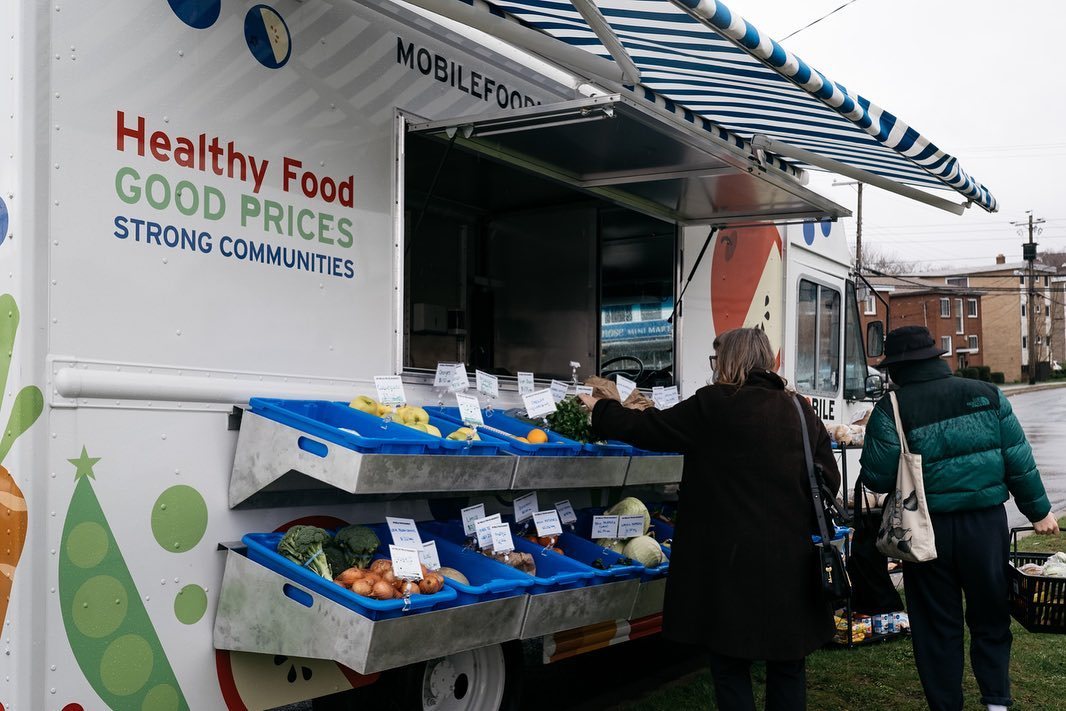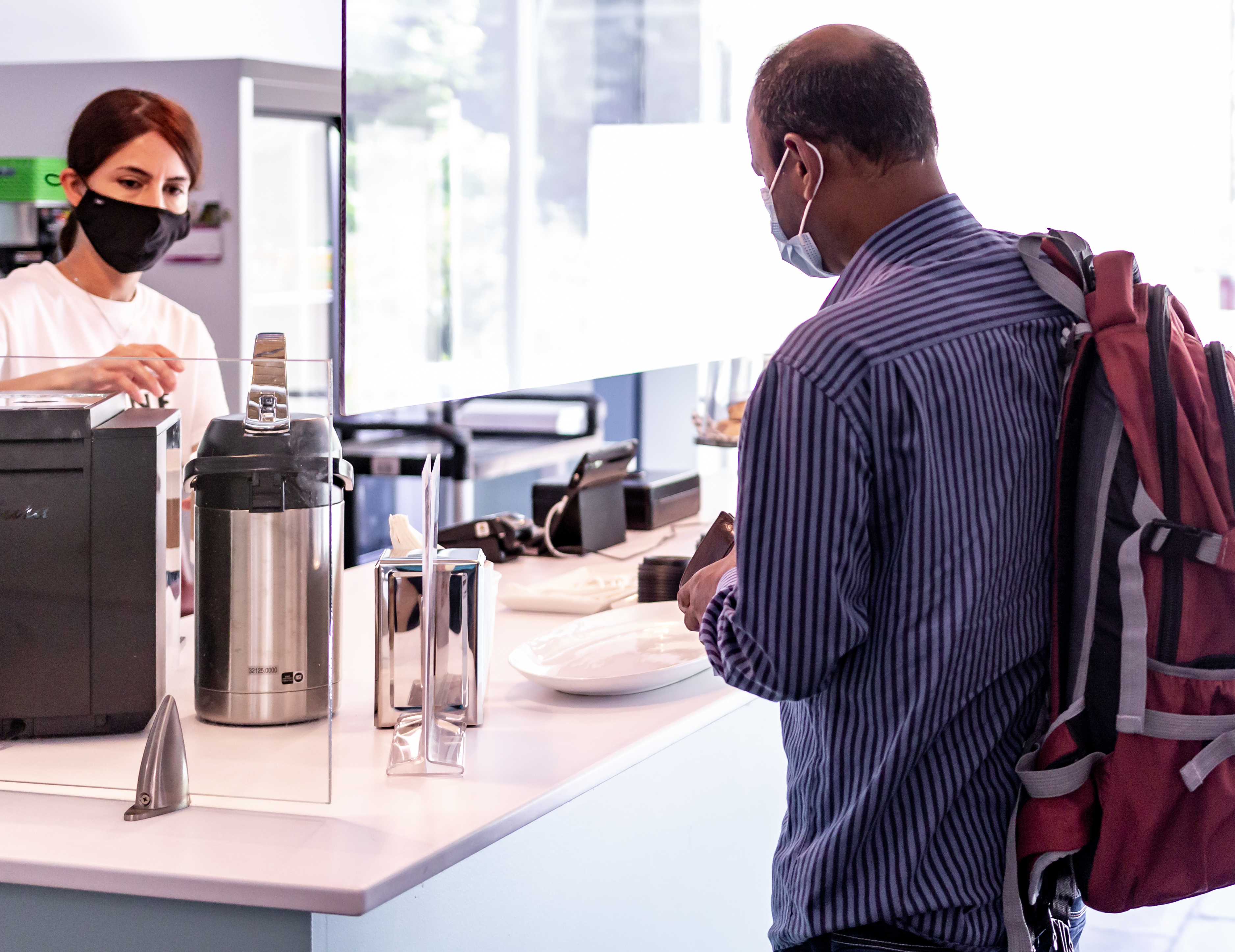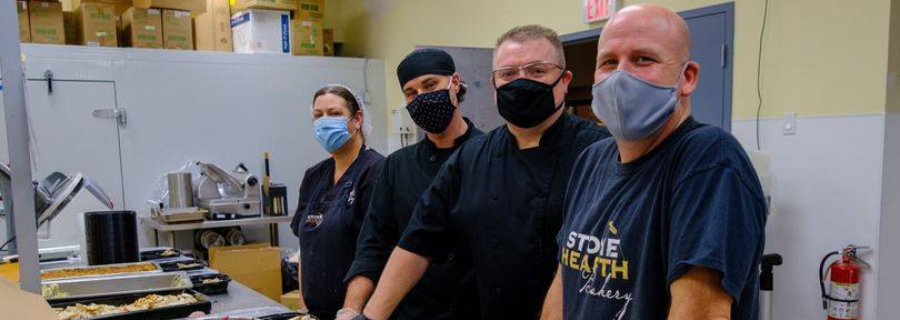The MetroWorks story begins over forty years ago. In the 1970s, the city of Halifax was concerned about the number of people living on social assistance. In 1977, the city launched a non-profit organization to help educate, train, and find employment for this population. Since then, MetroWorks has continued to engage Nova Scotia’s labour force, pioneering a for-profit and non-profit hybrid business model that includes numerous social enterprises across the municipality.
These social enterprises provide opportunities and resources for employment-seeking individuals. The EDGE and Options Work Activity Programs are designed to train youth and anyone struggling to find employment. The Common Roots Urban Farm Program teaches participants about the joys of gardening, and the Mobile Food Market provides communities with access to fresh produce. The Stone Hearth Bakery and Stone Hearth Café provide meaningful experience in the food and customer service industries for participants who face barriers to employment.
Across these programs and social enterprises, supporting individual growth is at the heart of MetroWorks. “There's lots of ways to address poverty, homelessness, and housing and food insecurities,” says Dave Rideout, President and CEO of MetroWorks. “But our focus is on personal capacity development. We use our social enterprises as venues for people to gain the employability skills they need to be able to move into the employment opportunities of their choice.”

Understanding barriers to employment
MetroWorks supports employment-seeking people from all walks of life. “Typically, our clients are individuals with barriers to employment and that barrier could be anything,” says Rideout. “A lot of times, the barriers are navigation barriers. If you're housing insecure, food insecure, financially insecure, if you don't have access to a computer or the internet, then navigating through systems is extremely difficult.”
Individuals can also face barriers when changing career paths. “Other individuals in our program have been displaced from their work, or they could be leaving one sector and coming into a new sector. They just need an opportunity to rebuild or learn new skills,” says Rideout.
From the outset, MetroWorks has championed inclusion in the workplace. “We were ingrained in inclusive work environments back in 1977,” says Lesley Dunn, Communications & Marketing Manager at MetroWorks. “We were already embracing people with disabilities and people from different ethnic backgrounds before inclusion became the buzzword. It was always a part of our everyday activities for us. It's a natural part of who we are and what we do.”
Recently, MetroWorks has placed renewed focus on helping newcomers to Canada find employment. Many of these newcomers were highly skilled, and yet they were unable to find employment. “We had newcomers in the program that had double MBAs,” says Dunn. “I did an environmental scan, and I found out that for every thousand highly-skilled newcomers coming to the province, 15% of them were not getting employed and were ending up on income assistance.” This discovery stunned Dunn. “I didn’t understand why, if we have employers looking for these skills, these people are not just readily being brought into the work environment,” she says.
The situation spoke to the level of unconscious bias employment-seeking individuals face in the workplace. Dunn recounts a recent conversation she had with a newcomer entrepreneur who has found success in Nova Scotia. “I asked him: ‘What do you think worked for you here?’ And he said: ‘I got rid of my accent from my home country.’” Dunn was mortified by this response. “We have the skills,” she reiterates. “We have an abundance of people who are ready to work. All we need to do is continue building relationships between ourselves, employment-bound individuals, and employers. We're here in the community to support them. Nobody has to do anything by themselves. You just have to stop working in silos.”
Recognizing privilege and educating employers
MetroWorks is tirelessly dedicated to supporting employment-bound individuals. But they also provide significant support to employers. “Employers will tell you that they have trouble recruiting and getting the right people, but there are people out there,” says Rideout. “It's just that they're not totally engaged in the process, because when you are disadvantaged, it's difficult to get engaged in that system.”
Rideout presents an example. Picture a young person seeking their first job, or someone who is socially or economically disadvantaged, going into a business for an interview. They approach the front desk, and the receptionist’s haircut costs more than they’ve made in six months. “You're immediately at a disadvantage,” says Rideout. "It makes it challenging for those individuals to be able to access those employment opportunities.”
That’s where MetroWorks comes in. They support the individual seeking employment, but they also help the employer understand how they are presenting the business to prospective talent. “We can help employers demonstrate inclusiveness in their front-facing places and in their recruitment practices,” says Dunn. “Supporting the individual is extremely important, but supporting the employer is equally important in that journey.”
That journey for employers starts with understanding. “The thing that we try to communicate is that everybody has some kind of privilege,” says Rideout. “You may have privilege of youth, or privilege of education, or privilege from living in Halifax. It's just a matter of understanding your privileges and understanding what that means for people that don’t have them.” Once they gain this understanding, MetroWorks can help employers implement supports in their recruitment process.

Where inclusion happens
After the hiring process is complete, MetroWorks provides ongoing support to employers for any issues that may arise in the workplace. Rideout and Dunn point out that this is the place where inclusion has the most impact. “The issue is boots on the ground, people working side-by-side,” says Dunn. Rideout agrees: “From a management, society, or sector perspective, we can all be on the same board,” he says. “It comes down to the individuals you're working with. A lot of people do really well on the job, but where they fell down was in the break room, because that’s where social interactions are taking place.”
How can business owners change attitudes at that level? “That's where some big challenges come in,” says Rideout. “We try to fortify our clients as best we can and ensure that the employment situations that we put them in is going to be the right fit for them.” Clients can also connect with MetroWorks for guidance if issues arise, and the MetroWorks team can relay the clients’ concerns to the employer. “You start to be able to create communications channels that don't usually exist,” says Rideout. “In that sort of situation, the person might normally just leave and not come back. And then nothing in that environment changes for the next person brought on board. But because we get involved, and we're there to support both sides, we can give the employer insights and work on changing workplace environments.”
Being able to provide continuous learning and training gives MetroWorks an edge. “That's the power of social enterprise,” says Dunn. “To work alongside people who are different from us. That's our superpower.” ■
Learn more about MetroWorks at:
mymetroworks.ca
All photos contributed.
< Back to Articles | Topics: Member Profile

